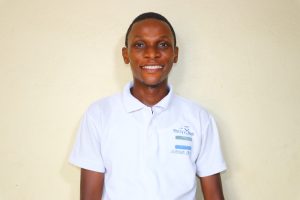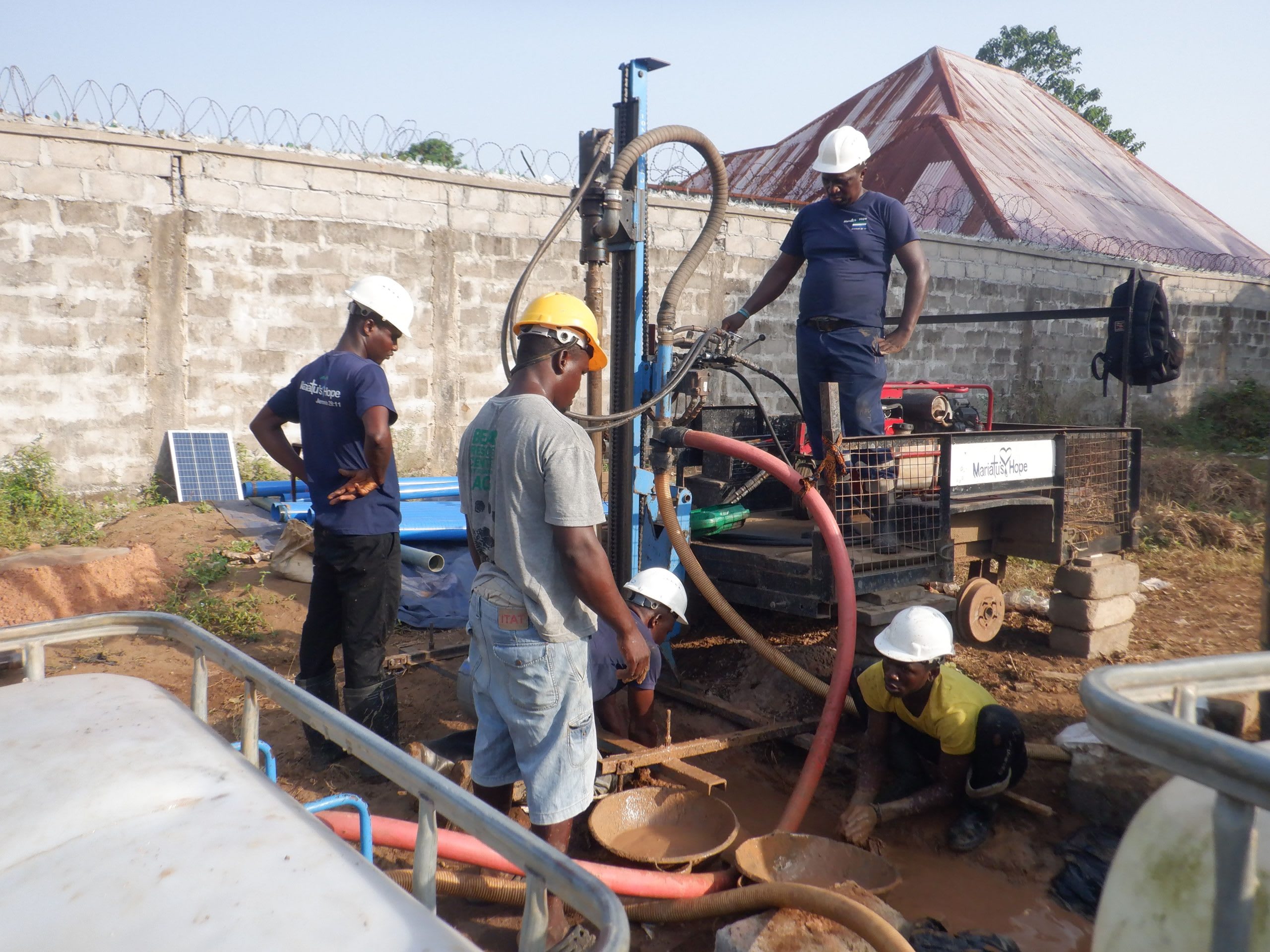The 150 community members of Royeama face a daily water crisis. Their only water sources are two privately owned dug wells, which make access challenging and unreliable.
"The two main sources they fetch water from are not always at the disposal of the community members, and this makes them not fetch water at the time they need it," said Field Officer Julius Sesay.
"They will go to the water point hoping to fetch water and return home quickly to cook and to deal with other things at home. Unfortunately, it will never happen on time. The main well they fetch water from is fenced. They must knock [on] the gate and wait patiently for the resident to open the door for them to fetch water. Even when they are given access to enter the compound, they must wait until the people that are residing in the compound finished to fill all their empty jerry cans," he continued.
Community members must also pay for access to privately owned water, creating hardship for many families.
"It really impacted me how the private waterpoint owners were extorting money from the community people. It is so wrong, but people have no choice, so they go without water or food or get behind on other things because they have to "buy" water instead of paying a water user fee that will maintain the water point," said Julius.

Usatu.
Fourteen-year-old Usatu is familiar with the frustrations of trying to collect water from private sources every day and the strain it financially puts on her family.
"My parents feel discouraged because they spend a lot of money to pay for water. There are times we end up eating rice and palm oil. Money will not be available to prepare sauce for the rice. Also, there are times I even go to school without lunch. My parents will rather pay to fetch water than give me money to use for lunch in school," shared Usatu.

"I feel displeased each time I am sent to fetch water because the well I normally fetch water from is not always open to the public. Even when I am given access to fetch water, I must pay before they allow me to fetch water."
"It is hard for me to have enough time to rest after school. This is because I must fetch water after school for my parents and also for me to be able to launder my school uniform. By the time I am through to fetch water, I would have limited time to rest and study my notes at night. All this situation makes me not do well in my exams in school."

A new well will be installed nearby, which will be accessible by the entire community and will provide relief for Usata and her family. With accessible water, they will be able to use their resources for other essential items like food, and Usata will have the time and energy to focus on her schooling.
Steps Toward a Solution
Our technical experts worked with the local community to identify the most effective solution to their water crisis. They decided to drill a borehole well, construct a platform for the well, and attach a hand pump.
Well
Abundant water often lies just beneath our feet. Aquifers—natural underground rivers—flow through layers of sediment and rock, offering a constant supply of safe water. A borehole well is drilled deep into the earth to access this naturally filtered and protected water. We penetrate meters, sometimes even hundreds of meters, of soil, silt, rock, and more to reach the water underground. Once found, we construct a platform for the well and attach a hand pump. The community gains a safe, enclosed water source capable of providing approximately five gallons of water per minute. Learn more here!
Community Education & Ownership
Hygiene and sanitation training are integral to our water projects. Training is tailored to each community's specific needs and includes key topics such as proper water handling, improved hygiene practices, disease transmission prevention, and care of the new water point. Safe water and improved hygiene habits foster a healthier future for everyone in the community. Encouraged and supported by the guidance of our team, a water user committee representative of the community's diverse members assumes responsibility for maintaining the water point, often gathering fees to ensure its upkeep.

 Borehole Well and Hand Pump
Borehole Well and Hand Pump
 Rehabilitation Project
Rehabilitation Project

















